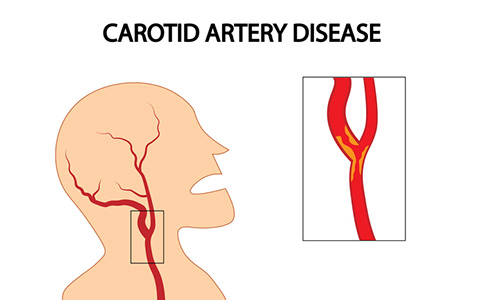Understanding Diagnosis Methods Used by a Carotid Artery Disease Doctor
Diagnosing carotid artery disease is crucial in determining the most appropriate treatment plan for patients. A carotid artery disease doctor, also known as a vascular surgeon, utilizes various diagnostic methods to assess the state of the carotid arteries and identify any potential blockages or abnormalities. Understanding how these specialists diagnose carotid artery disease can provide valuable insight into the process and help patients feel more informed about their healthcare journey.
Diagnostic Imaging Techniques:
One of the primary tools a carotid artery disease doctor uses is diagnostic imaging. This may include techniques such as carotid ultrasound, magnetic resonance angiography (MRA), computed tomography angiography (CTA), and angiography. These noninvasive imaging methods allow the doctor to visualize the carotid arteries, assess blood flow, identify plaque buildup, and detect any narrowing or blockages within the vessels.
Clinical Evaluation and Medical History:
In addition to diagnostic imaging, a carotid artery disease doctor will conduct a thorough clinical evaluation of the patient. This involves taking a detailed medical history, including any risk factors for carotid artery disease, such as smoking, high BP, diabetes, or a family record of vascular conditions. The doctor will also execute a physical examination to assess the patient's overall vascular health, including listening for abnormal sounds in the carotid arteries using a stethoscope.
Risk Assessment and Diagnostic Tests:
Patients at risk of carotid artery disease may undergo specific diagnostic tests to assess their vascular health. These tests may have measured the blood pressure in the arms and legs to check for variations that could indicate blockages or narrowing of the arteries. Also, the doctor may order blood tests to evaluate cholesterol levels and assess the presence of other risk factors that could contribute to carotid artery disease.
Carotid Artery Disease Doctor's Role in Diagnosis:
A carotid artery disease doctor plays a pivotal role in diagnosing vascular conditions. By combining the information gathered from diagnostic imaging, clinical evaluation, medical history, and risk assessment, the doctor can accurately assess the patient's carotid artery health. This comprehensive approach allows the doctor to develop a personalized medicine plan tailored to the patient's needs.
Collaboration with Multidisciplinary Team:
Diagnosing carotid artery disease often involves collaboration between the carotid artery disease doctor and a multidisciplinary team of healthcare professionals. This may include neurologists, cardiologists, radiologists, and other specialists who contribute their expertise to ensure a comprehensive evaluation and accurate diagnosis. By working together, these healthcare professionals can provide patients with a thorough assessment of their carotid artery health and recommend the most effective treatment options.
A specialized doctor diagnoses carotid artery disease by combining diagnostic imaging, clinical evaluation, risk assessment, and collaboration with a multidisciplinary team. By utilizing various diagnostic methods and taking a comprehensive approach to patient care, carotid artery disease doctors can accurately diagnose conditions and develop tailored treatment plans to improve their patient's vascular health.


Comments
Post a Comment